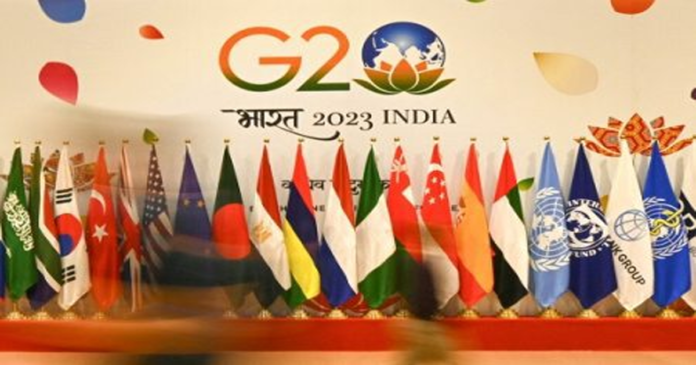Despite the absence of the presidents of China and Russia from the summit, G20 leaders started to arrive in New Delhi on Friday, expecting to achieve progress on trade, climate change, and a number of other global issues.
G20 gathers in India with Xi absent: In order to control the world economy, the G20 was created in the midst of the 2008 financial crisis.
However, as presidential and prime ministerial flights began descending in the Indian capital, the conspicuous absence of China’s Xi Jinping raised questions about what, if anything, the diverse bloc can still agree on.
The customary work of resolving differences and crafting a joint communique for leaders to sign was still unfinished as the summit was about to start.
No official explanation for Xi’s absence has been provided, but China has been clear about its intention to replace historically US-led organisations like the G20 with ones more beneficial to Beijing’s interests.
Instead, Xi will host the presidents of Zambia and Venezuela in Beijing.
Diplomatic disapproval and war crimes accusations prevent Vladimir Putin, the leader of Russia, from visiting, despite Moscow’s ongoing pressure on allies to soften world criticism of its invasion of Ukraine.
British Prime Minister Rishi Sunak stated, “Vladimir Putin is failing to show his face at the G20 once again.”
He creates his own diplomatic exile by solitary confinement in his presidential palace and selective denial of facts and criticism.
Meanwhile, the other G20 members are proving that they will show up and band together to clean up the debris left by Putin.
Monitoring attentively
US President Joe Biden said before the summit that it would still “deliver” despite market concerns that a trade war between the two biggest economies in the world was about to intensify.
There have been rumours that China is planning to outlaw the widely used iPhone.
On the flight to the conference, US National Security Advisor Jake Sullivan fielded questions regarding such rumours.
He said Beijing should provide answers to questions like “what’s driving them, what the scope of this will be, and what they think the net effect of that will be.”
Many G20 leaders worry that when the powerful forces of global trade clash, their economies could already suffer collateral harm.
According to economists, US limits on China’s access to sensitive technologies have made the second-largest economy in the world’s recession worse.
However, they also highlight China’s severe structural issues, including a declining labour force, declining productivity, and an overheating real estate market.
US Treasury Secretary Janet Yellen cautioned that a downturn in China posed hazards to the entire world in a speech she gave on Friday in Delhi.
“We have been closely monitoring China’s economic challenges, which span a range of both immediate and longer-term global challenges,” she said.
That being said, China has many of policy options to deal with these issues.
central position
In an effort to strengthen his reputation as a statesman in advance of running for office again early next year, Indian Prime Minister Narendra Modi, who is hosting the summit, has inserted himself into the political gap.
There can be no doubt who is in command now when motorcades thunder in from the international airport in New Delhi, which bears the name of the formerly all-powerful, always-present prime minister Indira Gandhi.
Modi’s picture can be seen from billboards, signs, and posters as the two-day summit’s extremely visible representative.
In others, Modi merely extends the guests’ greetings. In others, he provides platitudes like jobs, growth, and “giving voice to the global south” that are commercially viable locally.
The Economist Intelligence Unit’s senior Asia analyst, Sumedha Dasgupta, predicts that “India will try to be a credible voice that can facilitate dialogue between the global north and south.”
With some leaders endorsing the expansion of the bloc into the “G21” and the inclusion of the African Union as a permanent member, Modi appears to have secured at least one significant step in that direction.
Less successful have been Modi’s attempts to persuade the G20 to address global debt restructuring and shocks in commodity prices in the wake of Russia’s invasion of Ukraine.
A July G20 energy ministers meeting also fell short of reaching an agreement on a plan to gradually reduce the use of fossil fuels, or even to mention coal, the filthy fuel that is still a major source of energy for developing nations like India and China.

